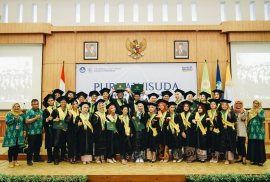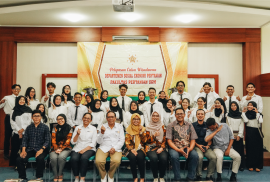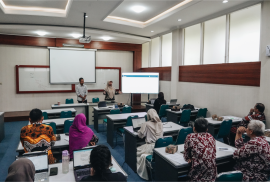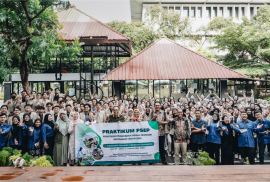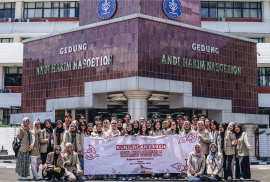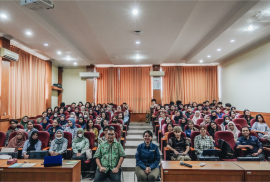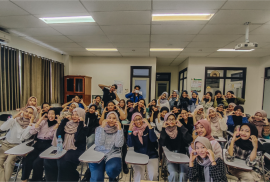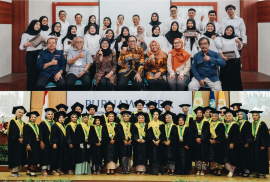Yogyakarta, November 20, 2024 – Universitas Gadjah Mada (UGM) successfully held the Undergraduate Graduation Ceremony for Period I of the 2024/2025 Academic Year, marking a significant milestone for students who have completed their undergraduate education. The ceremony was conducted with great warmth and joy, celebrating the achievements of the graduates.
For the Faculty of Agriculture, the graduation took place at two main venues. The first session was held at Grha Sabha Pramana (GSP), where graduates received their diplomas from the faculty dean. The ceremony continued at the Harjono Danoesastro Auditorium, Faculty of Agriculture, where graduates were presented with their academic transcripts, completing the graduation process.

